Léa Garcia
出生 : 1933-03-11, Rio de Janeiro, Rio de Janeiro, Brazil
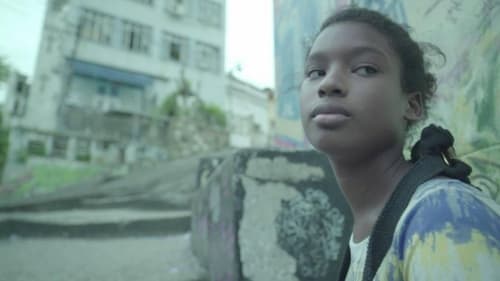
Dona Preta
Tati, an introspective 13 year old girl struggles to connect with her estranged father, Jaca, after he is released from prison in the turbulent wake of the Rio Olympics. As Brazilian Pacification Police battle to maintain a tenuous occupation of the surrounding Rio favelas, Tati and Jaca must navigate the clashing forces threatening to derail their hope for the future.

Mãe Andinha
With his mom's salon on the brink of bankruptcy, a dedicated son rolls up his sleeves to help and discovers himself as the coolest barber on the block.

Tia Neguita
Roque and Pudim, composers from the old school of Vai-Vai, share a kitchnete, decades of friendship, love for their samba school and a doubt about the past: what happened to dancer Rita, their passion.
The emergence of Ritinha, the dancer's daughter, threatens to collapse this great friendship.

Jerusa
"A Day with Jerusa" follows Silvia, a young, mediumic market researcher facing the hardships of underemployment while awaiting the result of a public exam, and Jerusa, a gracious 77-year-old lady, eyewitness to the daily life on Bixiga, a neighborhood filled with ancestral memories. On Jerusa's birthday, while she waits for her family's arrival, the encounter between her deepest memories and Silvia's mediumship allows them to travel through time and realities common to their ancestry.
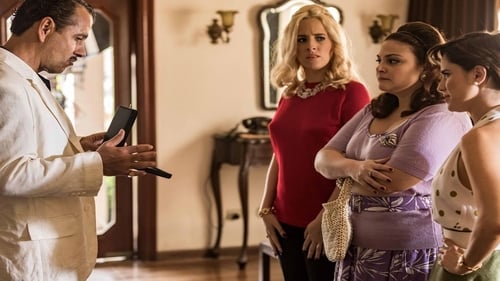
Preta
After his death, infamous Rio de Janeiro mob boss Golden Mouth (named after his all-golden teeth) gets multiple accounts of his life told to the press by his former lover.

Dona Angela
When Maurício becomes a student at a top medical school, he becomes obsessed with a mystery linked to the dead bodies used for dissection.
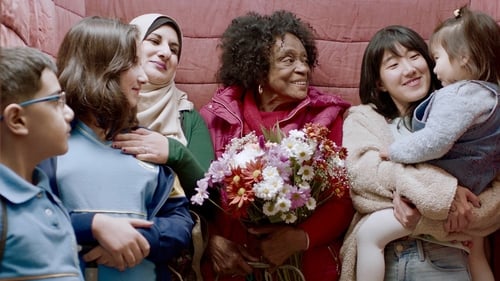
The 43rd edition screens Neighbors, with five segments about the theme “neighbors”: not only about physical proximity, but also about relationships. In Brazil, Olga is a 90-year-old black woman who lost her husband one year ago; her neighbors, who come from different parts of the world, interrupt her grief. In Russia, an employee tries so hard to please his boss that he becomes inconvenient. An Indian woman, with the help of her male friend, decides to learn how to drive, an uncommon practice for women in the country. In China, an elderly, owner of an old and decadent barbershop, argues with his son, who wants to change the business. In South Africa, a group of homeless fights for the right to housing.

Olga

Cai na Noite na Pavuna: While Bob revisits his past with a childhood friend, little Augusto and his grandmother follow on TV a vote that will change the course of Brazil.

For Lete, only excess can bring back the memories she does not want to forget. But if you take away the illusion of a person, only emptiness remains.

Herself
The African deity that brought in Brazil Together with the blacks, Exu is known as the orixá of communication, the guard of the streets and the human behavior. The short film of black culture and its assimilation by Brazilian art. In its subtext, the film honors one of the greatest activists of the black cause - the actor, the poet, the playwright and the politician - Abdias do Nascimento. The positioning of the documentary seeks to incorporate the fighting spirit, expressive and restless of Abdias: present link between characters, images and children of the film.

Maria da Graça
In the heart of Rio de Janeiro, Maria da Graça (Léa Garcia), the devoted and hardworking mother of Pedro (Vinícius Patrício) lives in the highest and isolated spot of the Pedacinho do Céu favela, who works hard to maintain her son's studies. He, in turn, eagerly awaits the outcome of the college entrance examination and an eventual scholarship. In the context of a competitive and unequal society, Peter's failure can definitely seal his fate, but a victory and overcoming can also take its toll.
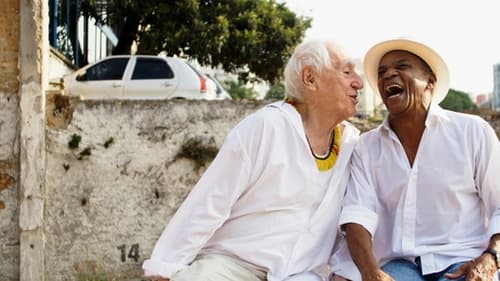
Self
This documentary investigates the aesthetic, political and existential trajectory of emblematic Black Brazilian actor Antônio Pitanga. He career spans over five decades, and he has worked with iconic Brazilian filmmakers Glauber Rocha, Cacá Diegues and Walter Lima Jr. He was a prominent figurehead and outspoken activist during the Brazilian dictatorship, a period of unrest in Brazilian cinema. Pitanga deep dives into the world of Antônio and the history of Brazil. The documentary was directed by his daughter Camila Pitanga, one of widely recognised faces in Brazilian television and cinema right now. The film is also a poem, and a tender ode to fatherhood.

Jerusa
Bixiga, heart of São Paulo. Jerusa, a resident of a house aged by time, on a special day, receives Silvia, an opinion pollster who circulates the neighborhood convincing people to answer questionnaires for a washing powder survey. The moment she meets Silvia, Jerusa provides her with an unusual afternoon full of memories, inviting her to share moments of happiness with an "unknown person".

Nha Zita
Biopic about the late Joãozinho Trinta, a self-taught classical dancer who turned Rio's Carnival into an international phenomenon in the 1970s and '80s by directing parades for samba schools and putting focus on costumes and decor.

Luzia

Dona Iraci
In a Brazilian coastal village where everything seems motionless, Clarice grasps her life in a single day, unlike those she meets and who are living this day like any other. She tries to understand her obscure reality and the destiny of the people around her in a circular time that haunts and disorients.

Zezé
Antônio is an astrophysicist who has just found out he has an inoperable brain tumor. After decades living in the United States, he returns to Brazil and tries to learn more about his biological mother. His quest sends him off into the slums of Rio de Janeiro.

Eunice

Self (archive footage)
To celebrate the life and the work of a multifaceted creator – playwright, poet, partner of the most important names of Brazilian pop music and, above all, an enlightened character of the Brazilian cultural history - director Miguel Faria Jr. gathered an incomparable cast of partners, singers, friends and rare images from the archives recalling Vinícius’ genial simplicity, with the spontaneity, the humor, and the freedom of a person chatting over a bar table, exactly how the eternal Vinícius would enjoy.

Jú
É uma lírica história de redenção amorosa entre irmãs, mães e filhas, em uma pequena cidade do interior de Minas Gerais, onde os fantasmas da escravidão e do racismo acentuam os dramas de forma sutil e poderosa.
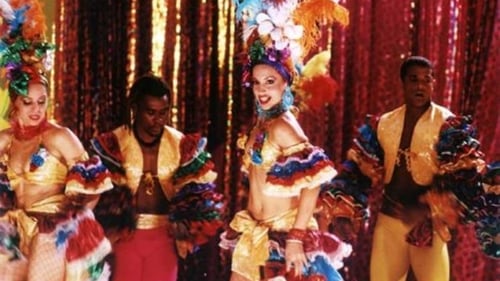
Mãe de santo
A light-hearted and high-spirited story, full of spice, sensuality and romance, Viva Zapato tells the tale of Dolores, a beautiful Cuban dancer who decides to leave her failing marriage and open a restaurant by the beach with her aunt from Brazil. When her aunt sends her a pair of shoes instead of the money to start up the restaurant, she angrily sells the useless gift for spare change. Her dream fades away - until she discovers that the money was hidden in the heel. The zany search for the shoes begins, as she follows the footsteps through the lively streets of Havana, running into the quirky, colorful characters that bring Viva Zapato and Dolores' dream.

Herself
A documentary film about the taboos, stereotypes, and struggles of black actors in Brazilian television "soaps". Based on his own memories and on a sturdy body of research evidence, the director analyses race relations in Brazilian soap operas, calling attention to their likely influence on Brazilian African-Americans' identity-forming processes.
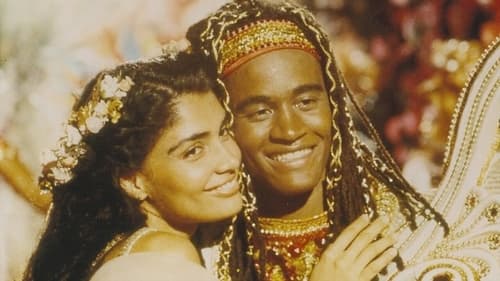
Mãe de Maicol
カリオカの丘の天才ミュージシャン、オルフェ。彼は丘にやってきた美女と出会い恋に落ち、彼女のために権力者ルシーニョと対決する。ラテンの熱いサウンドとともにおくる情熱的なラブ・ストーリー。

Self
"Portraits and excerpts from Brazilian films from all times. Actors, directors and images that affirm cinema."

Interviews and performances with black women on film, theater and television who narrate their lives, careers, discrimination and struggles in the Brazilian artistic world. Starring actresses Zezé Motta, Ruth de Souza, Léa Garcia, Zenaide Zen and Adele Fátima, as well as activist Lélia Gonzáles.

Quilombo dos Palmares was a real-life democratic society, created in Brazil in the 17th century. This incredibly elaborate (and surprisingly little-known) film traces the origins of Quilombo, which began as a community of freed slaves. The colony becomes a safe harbor for other outcasts of the world, including Indians and Jews. Ganga Zumba (Toni Tornado) becomes president of Quilombo, the first freely elected leader in the Western Hemisphere. Naturally, the ruling Portuguese want to subjugate Zumba and his followers, but the Quilombians are ready for their would-be oppressors. The end of this Brave New World is not pleasant, but the followers of Zumba and his ideals take to the hills, where they honor his memory to this day. Writer/director Carlos Diegues takes every available opportunity to compare the rise and fall of Quilombo with the state of affairs in modern-day Brazil.

Manuela
When Daniela, a famous actress, decides to return to her hometown to reconnect with a simpler lifestyle, local politicians decide to exploit her influence in order to get ambiguous deeds done.

A Deusa Negra is a love story that spans two centuries. In 18th century Yorubaland, Prince Oluyole is taken prisoner in the course of internecine warfare fanned by overseas slave traders. He is sold into slavery in Brazil. In present day Nigeria, at his father's deathbed, the young Babatunde promises to go to Brazil and search for traces of their once-enslaved ancestors. Beginning with a Candomblé ritual, his journey takes him ever deeper into this culture and, in a dream-like sequence, affords him a deeper understanding of his ancestors' suffering and powers of resistance. Balogun effortlessly links present with past, real with magical worlds and discourse with trance. The hypnotic atmosphere is also heightened by the music of the Nigerian drummer Remi Kabaka, which plays with repetitive patterns and distortions.

Carlota Escrava
After assaulting a Hollywood film crew, a group of residents of a community in Rio de Janeiro decided to produce a film that would express the reality of Brazil - with the theme of Inconfidência Mineira.

"Seven women on motorcycles, through Via Dutra, go to the Baixada Fluminense, a microcosm of Brazil. Diving into the memory and questioning the behavior imposed on women, they seek to rescue the strength of the feminine. The new woman, born in the Brazilian land, incorporates the Amazons and Santa Guerreira. At his side, the new man, more loose and creative. Closing the cycle, the initial road is resumed. " (HBH / QC)

Zefa
Jorge de Oliveira is an Afro-Brazilian poet who works in a publicity agency in São Paulo. Torn between his rich white lovers and his black family and friends, Jorge's situation serves as a springboard to a discussion about racial issues in Brazil.

Cipriana
The life of a runaway slave who founded the Quilombo dos Palmares, an outlaw community of Brazilian slaves.

Hermínia
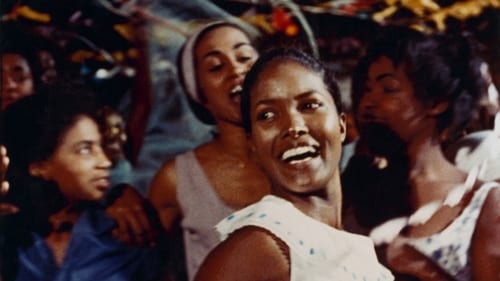
Serafina
Young lovers Orfeu and Eurydice run through the favelas of Rio during Carnaval, on the lam from a hitman dressed like Death and Orfeu's vengeful fiancée Mira and passing between moments of fantasy and stark reality. This impressionistic retelling of the Greek legend of Orpheus and Eurydice introduced bossa nova to the world with its soundtrack by young Brazilian composers Luiz Bonfá and Antonio Carlos Jobim.






























